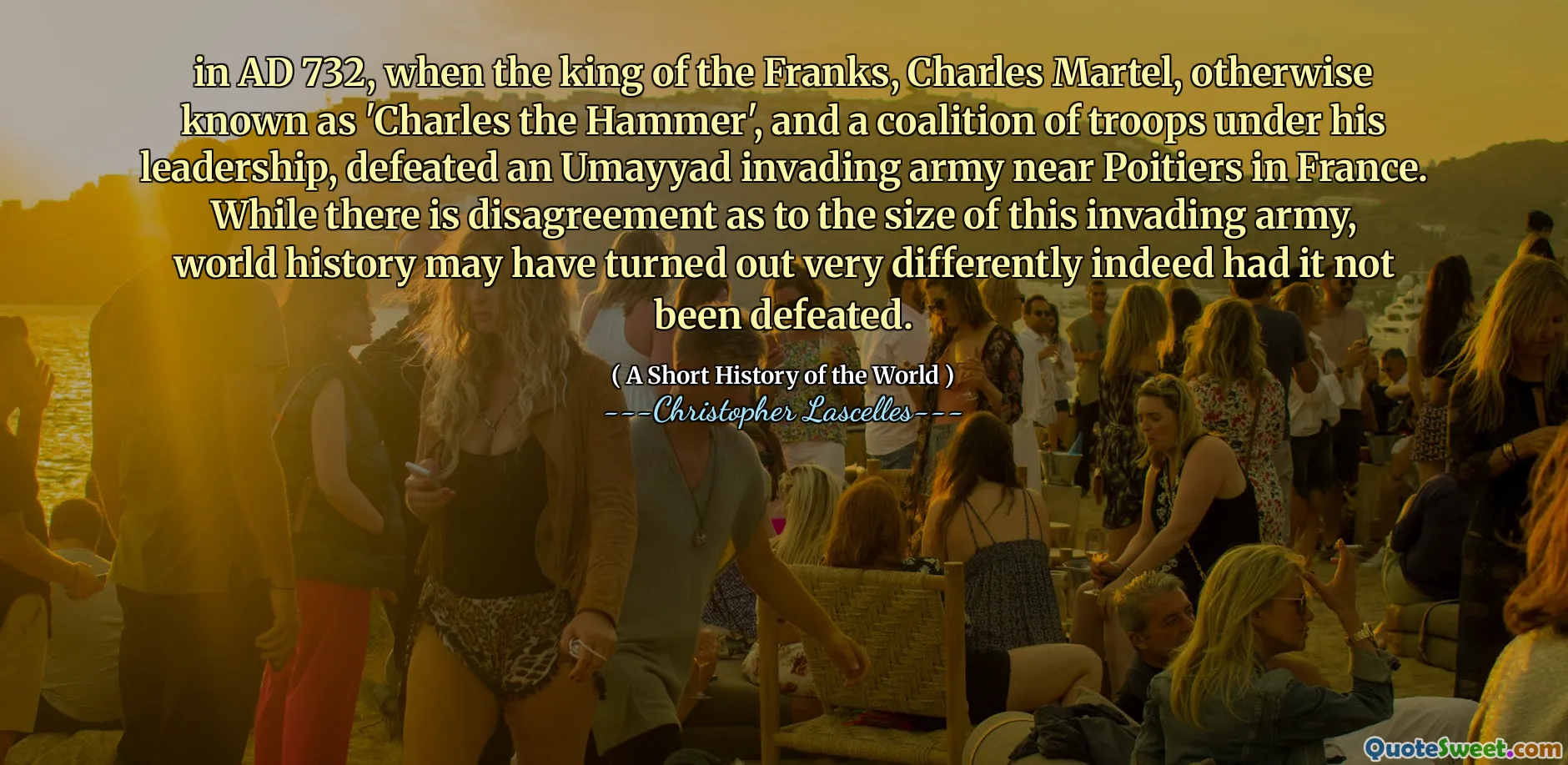
in AD 732, when the king of the Franks, Charles Martel, otherwise known as 'Charles the Hammer', and a coalition of troops under his leadership, defeated an Umayyad invading army near Poitiers in France. While there is disagreement as to the size of this invading army, world history may have turned out very differently indeed had it not been defeated.
In AD 732, Charles Martel, the king of the Franks, famously known as 'Charles the Hammer,' led a coalition to successfully repel an invading Umayyad army near Poitiers, France. This pivotal battle is subject to various interpretations regarding the size of the enemy forces, but its significance in history remains undisputed. Some historians speculate that had Martel failed in this confrontation, the trajectory of European history could have shifted dramatically.
Christopher Lascelles, in his book "A Short History of the World," highlights this encounter as a crucial moment that helped define the power dynamics in Europe. By halting the Umayyad advance, Martel not only secured his kingdom but also set the stage for the future development of Western Europe, potentially altering the spread of Islam and the geographical boundaries of ecclesiastical authority.






